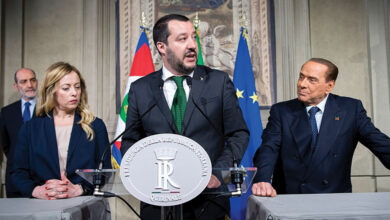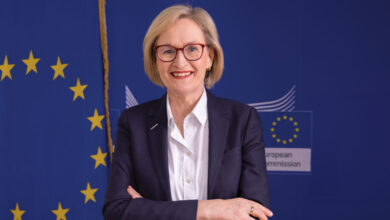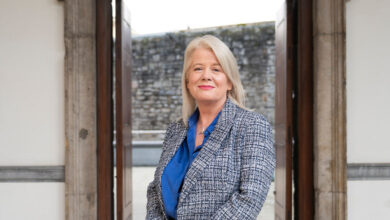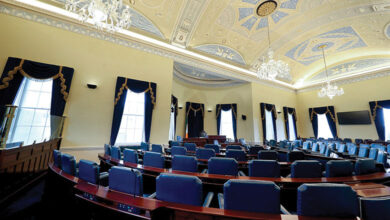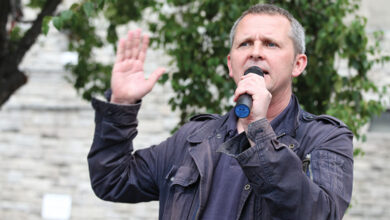European Diary
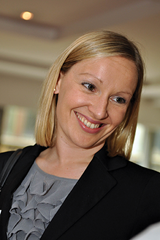 Creighton aims to finalise long-term budget
Creighton aims to finalise long-term budget
Ireland is aiming to finalise the long-term EU budget by the end of its presidency (30 June), Minister for European Affairs Lucinda Creighton has told an audience at the Frankfurt School of Finance and Management.
The budget (multi-annual financial framework) for 2014-2020 was allocated €960 billion when the Council (representing national governments) approved the draft in February. However, the European Parliament must still give its approval and its four main political groups want to increase the budget’s size.
In a keynote speech reviewing the presidency’s achievements to date, Creighton (pictured) stated: “Agreement among member states is far from the end of the process.”
She added: “We aim to complete the process by the end of the Irish presidency. This is a huge political challenge: the Parliament has made clear that its agreement cannot be taken for granted.”
The Minister said that Ireland had built up “close and constructive links” with MEPs. She described the presidency as a “complex, subtle leadership role” that involves partnerships with fellow member states and other EU institutions.
Specific results from the Irish presidency included:
• an agreement with the Parliament on the ‘two pack’ of economic governance legislation (to improve co-ordination in the euro zone);
• political agreement on a youth guarantee i.e. of employment, education or training for unemployed young people; and
• a swift response to the horsemeat scandal, which was also uncovered by the Irish Food Safety Authority.
Germany and Ireland, she said, both “cherish the gift of European unity” and the German federal election in September would be closely observed across the continent. There was “no doubt” that the economic crisis had “unleashed populist tendencies … and given new life to old stereotypes” but Creighton also found that it had increased engagement between the two countries.
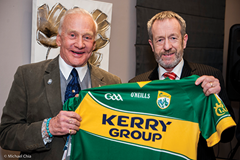 Aldrin inspires at major science conference
Aldrin inspires at major science conference
Former NASA astronaut Buzz Aldrin was the special guest at a major five-day conference on science hosted by Fine Gael MEP Seán Kelly in early March. The conference attracted around 1,000 delegates and was organised in association with the Irish EU presidency.
Aldrin commented that “the only limit to what we can achieve lies in the limits of our imagination.” Speaking during the conference, Seán Kelly remarked: “The conference aims to promote global co-operation on access to research infrastructures and to facilitate networking between Europe-based researchers with potential research partners worldwide.”
Kelly added: “We are on the cusp of some of humankind’s most innovative creations but we need to plan ahead and continuously search for the latest technology and [resources] to spur on further developments.”
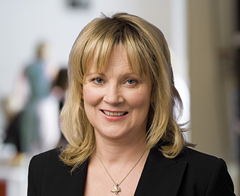 Call for gender quotas on boards
Call for gender quotas on boards
In a statement to mark International Women’s Day (8 March), Labour MEP Phil Prendergast called on the Government to introduce legislation for gender quotas for boards of publically traded companies.
The European Parliament has debated the introduction of gender quotas of 40 per cent for the non-executive boards of all publically traded companies in the EU. Effectively, this would mean companies reserving 40 per cent of the seats on their boards for each gender.
“As it stands, men make up 85 per cent of board membership for non-executive boards, and 91.1 per cent for executive boards across the European Union,” she stated, quoting European Commission figures.
“This cannot be allowed to continue. The voices of women, and the perspectives of women in business, are being lost in this male-dominated environment.”
Prendergast added: “I am also calling on the Government to introduce sanctions for companies which fail to fully implement the quota. I think if the legislation is too soft, then the companies will simply not adopt it or will find loopholes around it.”
The proposal has been withdrawn by the Commission, due to opposition from commissioners Neelie Kroes and Connie Hedegaard and the UK and German governments. Opponents claim that many women would not be appointed on merit.
Prendergast strongly disagreed and told eolas: “The problem is not one of qualification but rather one of appointment. There are cultural barriers that are preventing women being appointed to boards and these need to be tackled.”
She expects the Parliament to pass an ‘own-initiative’ report on the subject, which would put more pressure on the more conservative Council of Ministers. Prendergast prefers action at a European level which would promote consistency across member states.
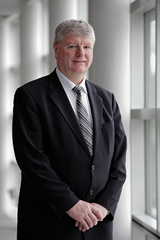 Food security: society’s ‘most serious problem’’
Food security: society’s ‘most serious problem’’
Fianna Fáil MEP Liam Aylward has warned that the world cannot ignore food insecurity at a time when hunger and malnutrition are growing problems. Aylward said that global food production must increase by
70 per cent by 2050 to feed a predicted population of 9 billion. The current global population is 7 billion.
“Across the world, agriculture faces the twin challenges of keeping pace with population growth and increasing food demand,” he told a European Parliament seminar on food security. “It is being done under increasing resource and environmental pressures. This only increases the need for new solutions to maintain the quality of the food as well as its security from farm to fork.”
The MEP found it “outrageous” that millions of tonnes of good food are wasted each year while an estimated 79 million people in the EU lived below the poverty line and around 16 million of those people depended on food aid from charities.
Research and innovation also had a key role and should be “at the heart” of the Common Agricultural Policy, along with the promotion of professional training, access to education, knowledge transfer and the exchange of best practice in agriculture.

